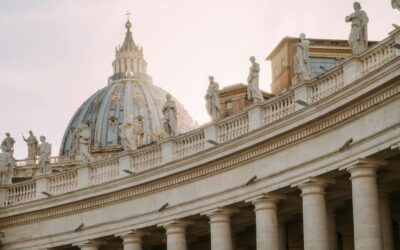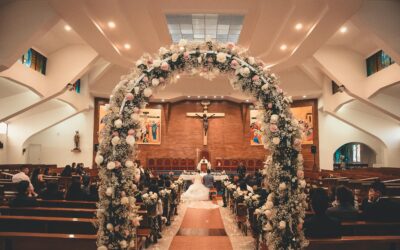“I have not killed anyone”… That is a phrase we often use to satisfy ourselves that we are “good people” and to assure ourselves that we are going to heaven.
But perhaps we must engage in deeper self-examination.
We may wonder why this is so. Is it not because a transgression against the law is a transgression against love? The love we ought to have towards God (the supreme Good) and the love we ought to have against our neighbor.
Therefore, as a minimum, let us also ask ourselves these further questions:
- Have I committed adultery? (Exodus 20:14)
- Have I stolen? (Exodus 20:15)
- Have I born false witness against my neighbour? (Exodus 20:16)
- Have I coveted my neighbour’s wife? (Exodus 20:17)
- Have I coveted my neighbour’s goods? (Exodus 20:17)
- Have I honored my father and my mother? (Exodus 20:12)
- Have I kept the sabbath day holy? (Exodus 20:8-11)
- Have I used the LORD’s name in vain? (Exodus 20:7)
- Is the LORD my God, or do I have other ‘gods’ before Him? (Exodus 20:2-3)
- Have I given the the hungry food to eat, something to drink, clothes to wear? Did I look after the sick, those in prison and strangers? In other words, am I able to see the image and likeness of God in my fellow human beings and do I love my brothers and sisters? (Mathew 25:31-46)
Perhaps we will come to see that not having killed someone does not show that we have loved.
In today’s world, perhaps the sins we are most guilty of are not the sins of murder, but of committing adultery, of coveting our neighbor’s wife and of having other “gods”.
When Hiding Reveals
If we are honest, we will come to see that we use the phrase “I have not killed anyone” in order to hide from our real sinfulness: the transgression of the law, our lack of obedience and our lack of love.
Adam and Eve hid themselves among the trees of the garden when they heard the sound of God walking in the garden, because they knew that they were naked [Genesis 3:8-10].
In our case, we hide behind the claim of not having murdered anyone, when we hear the voice of our conscience [the sound of God walking in the garden], because we know that we have sinned [that we are naked].
Hiding revealed the sin of Adam and Eve. Similarly, by hiding our sinfulness, we inadvertently reveal the fact that we have sinned. The very act of hiding reveals that we have things to hide. We are in effect making an admission that we have other sins that we are yet to deal with. We are hiding because we have come to know that we are naked and we are ashamed.
Sinning and Repenting … from Shame to Hope
In hiding, we forget that our salvation is not tied to the sins we have committed (as all have sinned all fall short of the glory of God), but to the sins we have not repented of.
We would do well to remember that St Paul was responsible for putting others to death. Even the soldier Longinus, who pierced the side of Christ during the crucifixion [John 19:34] is a saint.
None is righteous, no, not one [Romans 3:10]… all have sinned and fall short of the glory of God [Romans 3:23].
Yet, they are in heaven. And they are in heaven not because they murdered, but because they repented. What is more important than the sins we have committed, is the question of whether we will repent of our sins and confess them and choose to change our lives.
If we say we have no sin, we deceive ourselves, and the truth is not in us. If we confess our sins, he is faithful and just, and will forgive our sins and cleanse us from all unrighteousness. If we say we have not sinned, we make him a liar [1 John 1:8-10]
It is this repentance and conversion that will make us a saint. It is this repentance and conversion that we resist when we try to justify ourselves. And it is this lack of repentance and the unwillingness to humble ourselves, if persisted in, that will keep us out of heaven.
There are no limits to the mercy of God, but anyone who deliberately refuses to accept his mercy by repenting, rejects the forgiveness of his sins and the salvation offered by the Holy Spirit. [CCC 1864]
Heeding the Voice of Our Conscience
We would do well to tackle the sins that our conscience reminds us of (which is often the occasion of making such a declaration), as opposed to using one commandment to try and absolve ourselves of the others and to justify our continued practice of the others.
For whoever keeps the whole law but fails in one point has become guilty of all of it. For he who said, “Do not commit adultery,” said also, “Do not kill.” [James 2:10-11]
Blessed are the poor in spirit, for theirs is the kingdom of heaven [Mathew 5:3]
Then we shall be set free and no longer feel the need to justify ourselves, because the Lord justifies us by His forgiveness. Our self justification does not justify us.
How is it that we hate people because of their smaller faults, but we imagine that we shall live in God’s house as we have not murdered anyone.




0 Comments